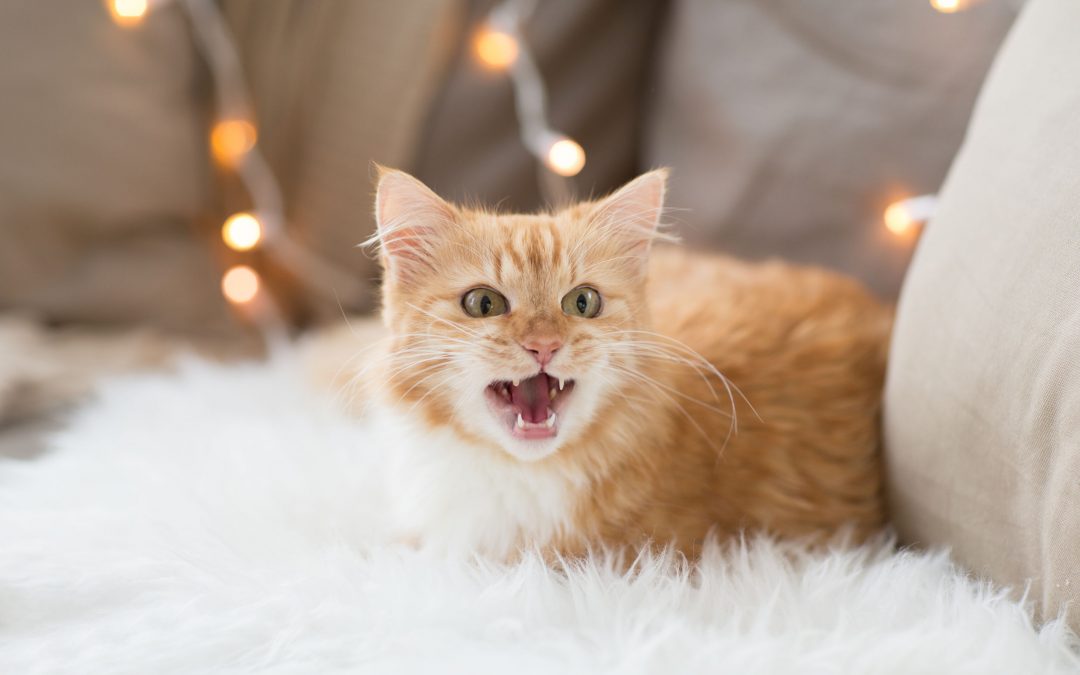Cats show affection in strange ways sometimes. Cat bunting is one example. This occurs when your pet decides to rub or nudge their head on your leg, face, or another part of your body. You might not think this behavior means anything, but it really does.
Learn how to recognize bunting and appreciate what your kitty is trying to tell you!
Bonding
Cat bunting is a type of behavior that denotes affection. It’s actually something you should be proud of. Your feline friend is basically telling you that they love you! Your pet is letting you know that you are a part of their feline family.
Your cat will often purr when cat bunting. The animal’s face will be relaxed, and they’ll often rub up against you. Now, this rubbing isn’t just a way to get your attention. It’s about being affectionate.
Scent Exchange
When you receive a gentle head butting from your feline, it’s not ALL about affection, though. It also means that your pal is exchanging scents. You see, your pet has an incredibly keen sense of smell. Your cat wants you to smell like they do!
Cats have scent glands on the head just above their eyes. These glands excrete pheromones – hormones cats use to stake their claim to their territory. Your pet is spreading the smell of their “colony,” and you’re a part of it.1
What to Do When You’re the Target of Cat Bunting
When you feel that cat head on your leg, don’t ignore it. This is a great bonding opportunity, so you should reciprocate by giving your pet attention, such as petting. Rub their head or face in return. You can even give your cat a gentle head bunt back!
 What you’re doing is building a relationship, one that should last for years to come.
What you’re doing is building a relationship, one that should last for years to come.
What if Your Cat Doesn’t Do This?
Cat bunting doesn’t only occur between cats and humans. Cats often rub each other to show affection and bond. If your feline does this to other cats in your home, but not to you, don’t worry.
All cats are different. Some love rubbing up against their pet parents, while others don’t. Just because your cat doesn’t exhibit this particular type of behavior, doesn’t mean your beloved feline doesn’t love you.
Other Ways Cats Show Affection
You might not experience the sudden rubbing of a cat head against your leg. And if not, don’t worry, that’s okay. Cats show affection in lots of ways.
Blinking – Have you ever noticed your cat sitting perfectly still and slowly blinking at you? Good news: this cat behavior means that your pet likes being around you! Next time this happens, give your cat a kiss, or slowly blink back.
Grooming – Cats groom themselves all of the time. They are very particular when it comes to cleanliness. But they’ll sometimes groom their humans, too. This is their way of sharing their scent, and showing they trust you.
Purring – When a cat feels happy and relaxed, they will purr. The purring will often get louder when the animal is petted in a certain favorite spot, such as under their chin.2
Cats can also show their affection by gifting you with a dead animal!
Head Pressing
If your pet is pressing their forehead against the wall or a piece of furniture, that could be an issue.
This type of behavior could be a sign that your pet is experiencing discomfort. It could be a neurological issue. If your cat is suddenly pressing against the walls and making odd sounds, that could be an emergency. Get them to the vet as soon as possible.3
Share the Love
No matter how your cat shows affection, always make sure to love them back. Get a toy and play, or simply pet the cat or give some kisses. Be affectionate! Looking at that beautiful face every day is a joy, and it’s clear that your feline feels the same way.
Give your cat plenty of attention and love, and always appreciate the time you have together.
Learn More:
Fostering a Cat – What Does it Entail and is it Right for You?
How to Keep Cats from Scratching on the Furniture
Home Remedies for Itchy Dogs
Sources
- https://www.petmd.com/cat/behavior/cat-head-butting-what-does-it-mean
- https://www.psychologytoday.com/us/blog/all-dogs-go-heaven/201809/how-do-cats-show-affection-humans
- https://www.catster.com/cat-behavior/the-cat-headbutt-what-does-it-mean































